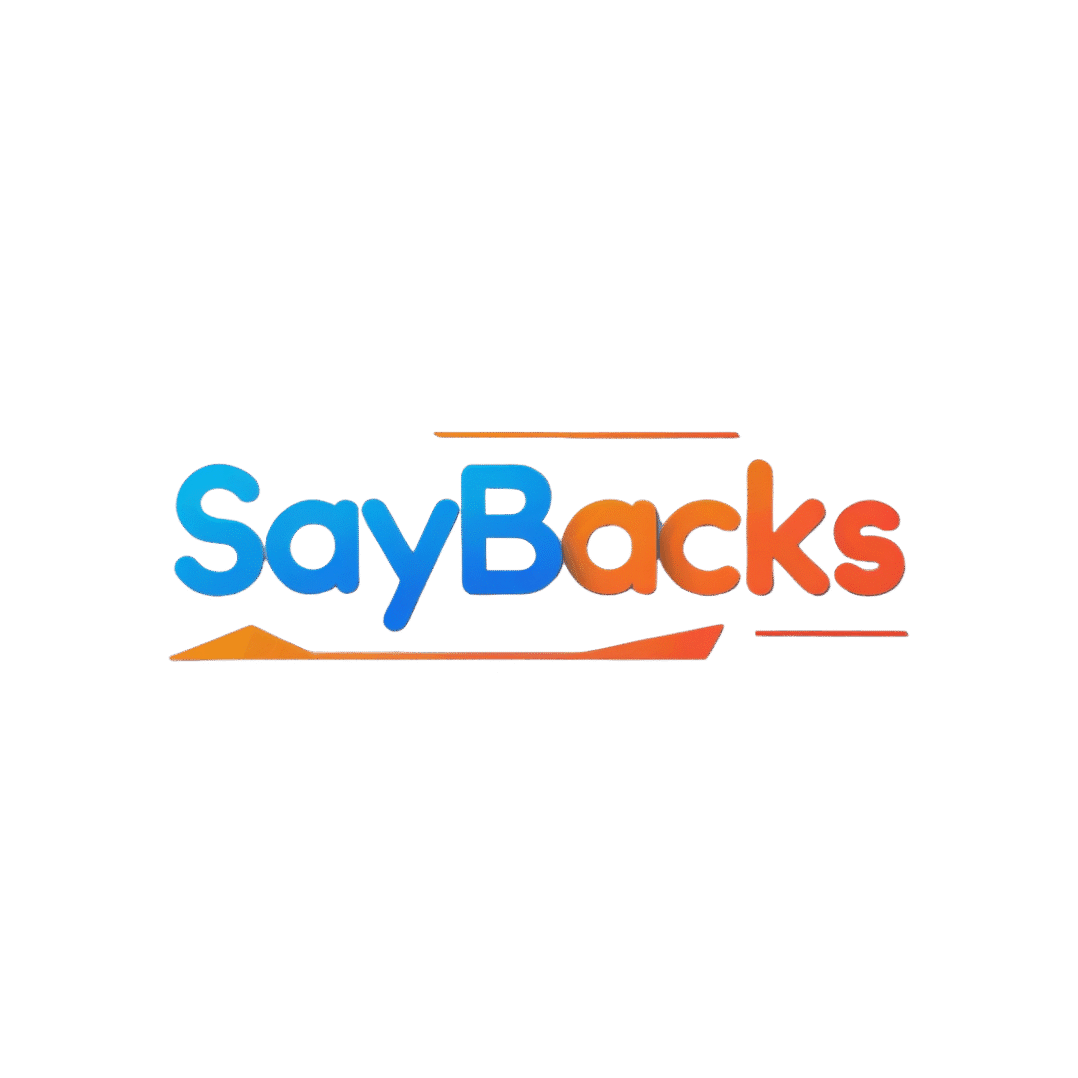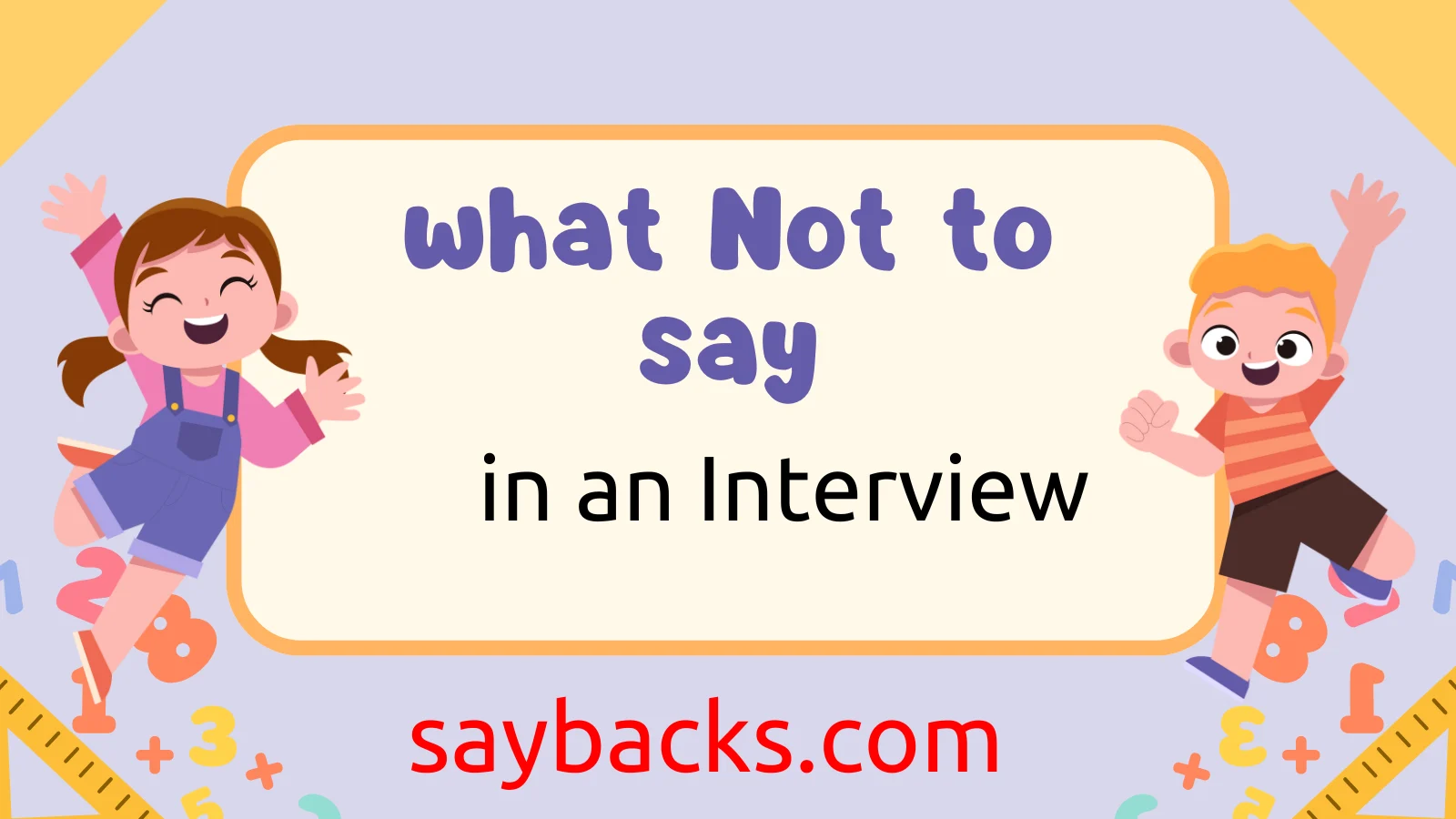Job interviews can be stressful, and sometimes it’s easy to slip up in the heat of the moment. One wrong word or phrase can impact your chances of getting hired. What not to say in an interview is just as important as what you should say. Words have the power to shape the impression you make on the interviewer, and saying the wrong thing can leave a lasting negative impression.
In this article, we’ll outline some common phrases and mistakes you should avoid during job interviews to ensure that you come across as professional, prepared, and confident.
1. “I’m Just Looking for Any Job”
Avoid Appearing Desperate or Unfocused
While it’s natural to want a job, expressing desperation or a lack of direction can signal to the interviewer that you’re not truly interested in the position or company.
What Not to Say:
- “I’m just looking for any job at this point.”
- “I’m not too picky about what I do as long as it’s a job.”
Why It’s Harmful:
This type of answer shows a lack of enthusiasm for the specific role you’re applying for and may suggest that you lack a clear career path. Instead, focus on why this particular job and company align with your goals.
Better Alternative:
- “I’m excited about this role because it aligns with my experience and long-term career goals.”
- “I admire your company’s mission, and I’m eager to contribute to your team’s success.”
2. “My Weakness is That I’m a Perfectionist”
Avoid Cliché Answers That Lack Depth
A common interview question is about your weaknesses, and while it’s tempting to give the “perfectionist” answer, it can sound insincere. Interviewers have heard it countless times and may not believe it to be a genuine weakness.
What Not to Say:
- “My biggest weakness is that I’m a perfectionist.”
- “I care too much about my work and sometimes spend too much time on small details.”
Why It’s Harmful:
This answer often comes across as a way to avoid giving a real weakness and might make you seem like you’re trying to dodge self-reflection. It may not demonstrate that you’re aware of your areas for growth.
Better Alternative:
- “One area I’m working on is my tendency to take on too many tasks at once. I’ve learned to prioritize and delegate more effectively.”
- “I sometimes struggle with saying ‘no’ when I’m asked to take on new responsibilities, but I’ve been working on balancing my workload.”
3. “I Don’t Get Along with My Previous Boss”
Avoid Speaking Negatively About Past Employers
Talking badly about your previous employer or colleagues can create a red flag for interviewers. It may suggest that you could potentially bring negativity into their workplace.
What Not to Say:
- “I didn’t like my last boss; they were really difficult to work with.”
- “I had a bad experience with my last company, and the environment was toxic.”
Why It’s Harmful:
This type of answer can make you appear bitter or unprofessional. It also raises concerns about your ability to work in a team or deal with conflict in a constructive way.
Better Alternative:
- “My last position wasn’t the right fit for me, but I gained valuable experience and am now looking for a role that’s more in line with my strengths and career goals.”
- “I prefer to focus on what I learned in my previous role, like how to communicate more effectively with my team.”
4. “I Have No Questions for You”
Avoid Appearing Unprepared or Uninterested
Asking questions during an interview is crucial because it shows that you’re engaged and have done your research. Saying you have no questions can make you seem disinterested or unprepared.
What Not to Say:
- “I don’t have any questions right now.”
- “No, I think you’ve covered everything.”
Why It’s Harmful:
By not asking questions, you miss an opportunity to show your curiosity and understanding of the company. It could make the interviewer question your interest in the role.
Better Alternative:
- “Can you tell me more about the team I would be working with?”
- “What does success look like in this role?”
- “How does your company support professional development?”
5. “I’m Just Here for the Salary”
Avoid Focusing Solely on Compensation
While salary and benefits are important considerations, focusing only on these aspects can give the impression that you’re not genuinely interested in the work or the company’s mission.
What Not to Say:
- “I’m just here for the salary and benefits.”
- “The pay is my main priority, to be honest.”
Why It’s Harmful:
This response can make you seem like you’re motivated solely by money and not by the opportunity to contribute and grow within the company. It may also suggest that you’re less invested in the organization’s culture or values.
Better Alternative:
- “I’m excited about this role because it allows me to utilize my skills and contribute to a team that shares my passion for [specific area of work].”
- “I’m looking for a role where I can grow professionally and make a meaningful impact.”
6. “I Don’t Know What I Want to Do”
Avoid Being Vague About Your Career Goals
Employers want to hire candidates who have a clear sense of direction and ambition. Saying you don’t know what you want can raise concerns about your commitment to the role and long-term goals.
What Not to Say:
- “I’m not really sure what I want to do yet.”
- “I haven’t figured out where I want to be in five years.”
Why It’s Harmful:
This response can make you seem indecisive or unsure about your career. Employers want to know that you’re committed to a path and see the role as a stepping stone to further growth.
Better Alternative:
- “I see this role as an important step in my career, and I’m excited to grow within this industry and take on more responsibilities over time.”
- “I’m focused on continuing to build my skills in [specific area] and taking on new challenges as I grow in my career.”
Final Thoughts: What Not to Say in an Interview
Knowing what not to say in an interview is just as important as knowing the right things to say. Avoiding common pitfalls such as speaking negatively about past employers, focusing only on salary, or giving vague answers can help you make a positive impression. By staying focused, professional, and prepared, you’ll increase your chances of landing the job and advancing your career.

